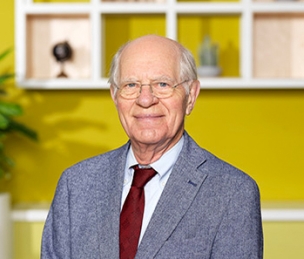Displaying 1 - 14 of 14
-
Levelt, W. J. M. (2008). An introduction to the theory of formal languages and automata. Amsterdam: John Benjamins.
-
Levelt, W. J. M. (2008). Formal grammars in linguistics and psycholinguistics [Re-ed.]. Amsterdam: Benjamins.
Abstract
Contains: Vol. 1 An introduction to the theory of formal languages and automata Vol. 2 Applications in linguistic theory Vol. 3 Psycholinguistic applicationsAdditional information
Table of contents -
Levelt, W. J. M. (2008). Speaking [Korean edition]. Seoul: Korean Research Foundation.
-
Levelt, W. J. M. (2008). What has become of formal grammars in linguistics and psycholinguistics? [Postscript]. In Formal Grammars in linguistics and psycholinguistics (pp. 1-17). Amsterdam: John Benjamins.
-
Levelt, W. J. M. (1991). Die konnektionistische Mode. Sprache und Kognition, 10(2), 61-72.
-
Levelt, W. J. M. (1991). Lexical access in speech production: Stages versus cascading. In H. Peters, W. Hulstijn, & C. Starkweather (
Eds. ), Speech motor control and stuttering (pp. 3-10). Amsterdam: Excerpta Medica. -
Levelt, W. J. M., Schriefers, H., Vorberg, D., Meyer, A. S., Pechmann, T., & Havinga, J. (1991). Normal and deviant lexical processing: Reply to Dell and O'Seaghdha. Psychological Review, 98(4), 615-618. doi:10.1037/0033-295X.98.4.615.
Abstract
In their comment, Dell and O'Seaghdha (1991) adduced any effect on phonological probes for semantic alternatives to the activation of these probes in the lexical network. We argue that that interpretation is false and, in addition, that the model still cannot account for our data. Furthermore, and different from Dell and O'seaghda, we adduce semantic rebound to the lemma level, where it is so substantial that it should have shown up in our data. Finally, we question the function of feedback in a lexical network (other than eliciting speech errors) and discuss Dell's (1988) notion of a unified production-comprehension system. -
Levelt, W. J. M., Schriefer, H., Vorberg, D., Meyer, A. S., Pechmann, T., & Havinga, J. (1991). The time course of lexical access in speech production: A study of picture naming. Psychological Review, 98(1), 122-142. doi:10.1037/0033-295X.98.1.122.
-
Friederici, A., & Levelt, W. J. M. (1987). Resolving perceptual conflicts: The cognitive mechanism of spatial orientation. Aviation, Space, and Environmental Medicine, 58(9), A164-A169.
-
Friederici, A., & Levelt, W. J. M. (1987). Spatial description in microgravity: Aspects of cognitive adaptation. In P. R. Sahm, R. Jansen, & M. Keller (
Eds. ), Proceedings of the Norderney Symposium on Scientific Results of the German Spacelab Mission D1 (pp. 518-524). Köln, Germany: Wissenschaftliche Projektführung DI c/o DFVLR. -
Friederici, A., & Levelt, W. J. M. (1987). Sprache. In K. Immelmann, K. Scherer, & C. Vogel (
Eds. ), Funkkolleg Psychobiologie (pp. 58-87). Weinheim: Beltz. -
Levelt, W. J. M. (1987). Hochleistung in Millisekunden - Sprechen und Sprache verstehen. In Jahrbuch der Max-Planck-Gesellschaft (pp. 61-77). Göttingen: Vandenhoeck & Ruprecht.
-
Levelt, W. J. M., & d'Arcais, F. (1987). Snelheid en uniciteit bij lexicale toegang. In H. Crombag, L. Van der Kamp, & C. Vlek (
Eds. ), De psychologie voorbij: Ontwikkelingen rond model, metriek en methode in de gedragswetenschappen (pp. 55-68). Lisse: Swets & Zeitlinger. -
Levelt, W. J. M., & Schriefers, H. (1987). Stages of lexical access. In G. A. Kempen (
Ed. ), Natural language generation: new results in artificial intelligence, psychology and linguistics (pp. 395-404). Dordrecht: Nijhoff.

Share this page